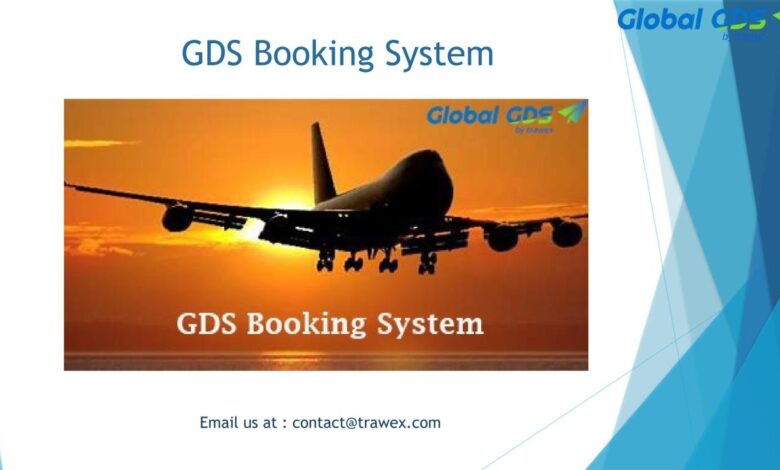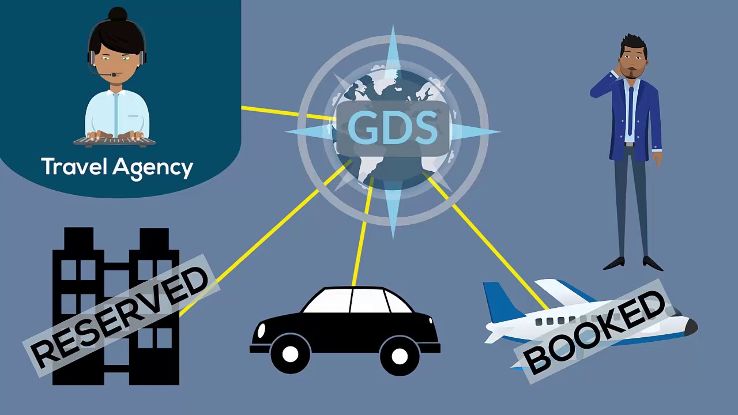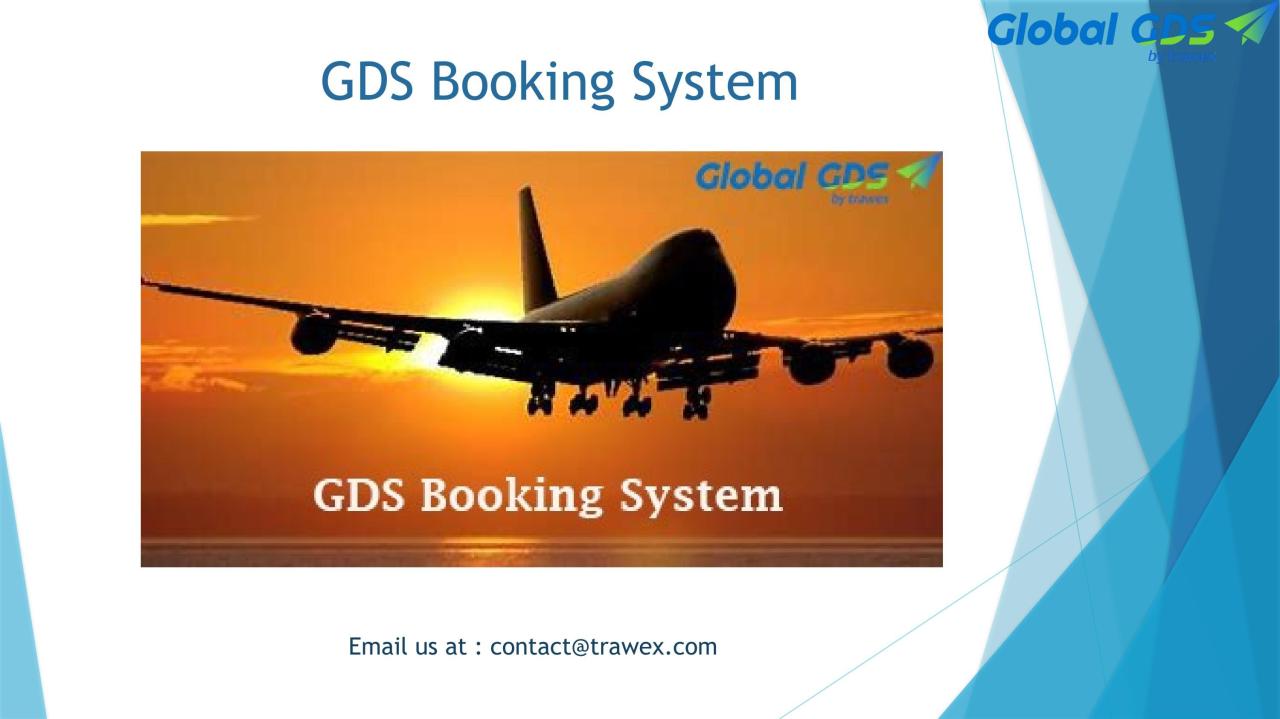
Booking Methods and Use of a GDS A Deep Dive
Booking methods and use of a GDS are transforming the travel industry. From the early days of travel agents to today’s sophisticated online platforms, the evolution of how we book trips is fascinating. This exploration delves into the diverse booking methods, the crucial role of Global Distribution Systems (GDS), and the interplay between them. We’ll examine the pros and cons of various approaches, and how GDS integration affects everything from consumer experience to business models.
This in-depth look at booking methods and GDS will cover everything from the historical context of travel booking to the future trends shaping the industry. We’ll explore how GDS systems work, the advantages and disadvantages for both consumers and providers, and how these technologies continue to evolve.
Introduction to Booking Methods
Booking methods have dramatically evolved from handwritten letters and phone calls to sophisticated online platforms. This evolution reflects the increasing demand for convenience, efficiency, and personalized experiences in the travel and hospitality industries. The introduction of global distribution systems (GDS) further revolutionized the process, enabling real-time access to inventory and seamless booking across numerous providers. Understanding these various methods is crucial for both consumers and businesses to navigate the modern booking landscape.This section provides a comprehensive overview of different booking methods, tracing their historical development and highlighting the advantages and disadvantages of each approach.
It will also analyze the shift from traditional booking methods to online platforms and evaluate the impact of this transition on the travel industry.
Different Booking Methods
Various methods cater to diverse needs and preferences. From the traditional in-person interaction to the automated online booking systems, each method offers unique benefits and drawbacks. The choice often depends on factors like the traveler’s familiarity with the process, available time, and the complexity of the booking.
Evolution of Booking Methods
The evolution of booking methods has been marked by significant milestones. Early methods involved physical travel agents who managed bookings on behalf of clients. The advent of the telephone introduced a degree of automation and efficiency, enabling direct communication between travelers and service providers. The introduction of the internet and the subsequent rise of online booking platforms fundamentally transformed the process, making it accessible and convenient for a wider audience.
The availability of real-time inventory through global distribution systems (GDS) has dramatically increased efficiency and reduced the need for intermediaries. This evolution has created a more competitive and customer-centric market.
Comparison of Booking Methods
| Booking Method | Pros | Cons |
|---|---|---|
| In-Person Booking (with Travel Agent) | Personalized service, potential for expert advice, assistance with complex itineraries | Limited availability, potential for higher fees, slower booking process |
| Phone Booking | Direct interaction, immediate confirmation, potentially faster than in-person | Less personalized service, potential for miscommunication, limited access to detailed information |
| Online Booking Platforms | Wide range of options, competitive pricing, real-time availability checks, convenience and flexibility | Potential for hidden fees, limited personalized service, reliance on technology, potential for security concerns |
| Global Distribution Systems (GDS) | Access to a vast network of hotels, airlines, and other travel providers, real-time inventory, reduced booking time, often used by travel agents | Can be complex for individual consumers, requires an intermediary for booking, might have fees or commissions |
Online Booking Platforms vs. Traditional Methods
Online booking platforms have significantly altered the landscape of travel booking. Traditional methods, while potentially offering personalized service, often suffer from limitations in terms of availability, speed, and access to comprehensive information. Online platforms, in contrast, offer a vast array of options, competitive pricing, and real-time availability checks, greatly increasing consumer choice and convenience. The accessibility and efficiency offered by online booking systems have made them a preferred choice for many travelers.
The widespread adoption of online booking platforms has revolutionized the travel industry by fostering greater competition and enabling consumers to access a wider range of choices at their fingertips.
Booking methods and using a Global Distribution System (GDS) are crucial for travel agents, especially when dealing with complex itineraries like river cruises. For instance, planning a Mekong river cruise with aqua expeditions to operate mekong cruises likely requires a sophisticated GDS to access and manage their diverse offerings, ensuring smooth booking processes and efficient customer service.
Ultimately, the right GDS simplifies the booking process for everyone involved.
Global Distribution Systems (GDS)
Global Distribution Systems (GDS) are the digital nerve centers of the travel industry. They act as intermediaries, connecting airlines, hotels, car rental companies, and other travel providers with travel agents and online booking platforms. This intricate network facilitates the booking process, enabling travelers to access a vast array of travel options from a single point of contact.GDSs are crucial for the efficient distribution of travel products.
They provide a centralized platform for searching, comparing, and booking various travel options, eliminating the need for individual interactions with each provider. This streamlined process not only saves time for travelers and agents but also improves operational efficiency for travel companies.
Fundamental Role of GDS in the Travel Industry
GDSs play a pivotal role in connecting travel providers with customers. They act as a sophisticated database, storing and disseminating information about flights, hotels, and other travel products. This centralized system facilitates the booking process, enabling agents and online platforms to access real-time information and offer a comprehensive range of travel options.
Functionality and Features Offered by a Typical GDS
A typical GDS offers a suite of functionalities that streamline the travel booking process. These functionalities include real-time inventory management, allowing agents to check availability across various providers simultaneously. Advanced search functionalities enable agents to filter and refine search results based on specific criteria, like price, dates, and destinations. Additionally, GDSs often provide tools for managing bookings, issuing tickets, and handling customer inquiries.
They also incorporate secure payment processing, ensuring a seamless and secure transaction for all parties involved.
Architecture and Internal Workings of a GDS
GDSs employ a complex architecture that encompasses various interconnected components. These systems typically utilize sophisticated databases to store vast amounts of information about travel products and inventory. Sophisticated algorithms and software are crucial for processing real-time data and ensuring accurate information is displayed to users. The architecture often includes robust security protocols to protect sensitive information and maintain the integrity of the system.
Communication protocols are vital to facilitate seamless data exchange between different travel providers and agents.
GDS Providers and Their Key Strengths
The travel industry relies on various GDS providers, each with its own strengths and weaknesses. These platforms play a vital role in the travel booking process.
| GDS Provider | Strengths | Weaknesses |
|---|---|---|
| Sabre | Extensive network of travel providers, robust technology, and strong market presence. | Can be complex to navigate for new users, and high cost of access. |
| Amadeus | Wide range of functionalities, including hotel and car rental options, and a strong focus on innovation. | Steep learning curve for new users, and can be expensive to implement. |
| Galileo | Global reach and extensive inventory of airlines and other providers. | Limited hotel offerings compared to other GDSs, and a slightly less advanced user interface. |
| Worldspan | Strong integration with airlines and a large network of travel agents. | Might have limited hotel partnerships, and potentially a slightly less comprehensive feature set. |
Types of Travel Products Bookable Through a GDS
GDSs facilitate the booking of a diverse range of travel products. They typically support the booking of air tickets, hotel accommodations, and car rentals. Furthermore, they often integrate with other travel services, including cruise lines and tour packages, thereby offering a comprehensive travel solution. This enables a wide array of options for customers.
Booking methods and the use of a Global Distribution System (GDS) are crucial for travel agents, especially when dealing with a surge in bookings. Blue Sky Tours, for instance, is predicting a fantastic 30th year with sunny days ahead, as detailed in their recent announcement. This increased demand highlights the importance of streamlining booking processes through efficient GDS usage, ensuring smooth operations and customer satisfaction.
Booking Methods Integrated with GDS

Booking travel through a Global Distribution System (GDS) is more than just a simple search. It’s a complex interaction between the traveler, the GDS, and the various booking methods available. Understanding how these methods integrate is key to a smooth and efficient travel experience. This process is often invisible to the consumer, but it’s a critical component of the modern travel industry.Booking methods aren’t isolated entities; they’re deeply intertwined with the GDS, providing a seamless flow from initial search to final confirmation.
The integration of these methods allows for the efficient exchange of information and ultimately enables travelers to find and book the right travel products.
Various Ways Booking Methods Interact with a GDS
Different booking methods interact with the GDS in distinct ways, each contributing to the overall booking process. Direct communication between the booking system and the GDS is crucial. This allows for real-time updates on availability, pricing, and other relevant details. This communication ensures the booking process is accurate and efficient. The GDS acts as a central hub, connecting various booking methods to provide a consistent and reliable experience.
Integration of Online Booking Platforms with GDS
Online booking platforms are integral to the modern travel experience. They act as user-friendly interfaces to access the vast inventory managed by the GDS. The integration between these platforms and the GDS is crucial for seamless data transfer. The booking platform queries the GDS for availability, displays the results, and processes the booking. The GDS verifies the booking details and updates its records accordingly.
This seamless integration allows consumers to browse, select, and purchase travel products efficiently.
Consumer Use of GDS through Various Interfaces
Consumers utilize GDS through various interfaces, including websites and mobile applications. Websites provide a comprehensive overview of travel products and allow for complex searches and filters. Mobile apps offer a more convenient and portable experience, enabling bookings on the go. In both cases, the underlying technology leverages the GDS to provide real-time information and facilitate bookings.
Examples of Consumer Use
Imagine a traveler using a hotel booking website. They enter their destination and dates, and the website interacts with the GDS. The GDS returns available hotel rooms, prices, and other details. The traveler selects a room, and the booking platform handles the payment and confirmation process. This example showcases how a consumer interacts with a GDS through a user-friendly interface.
Similarly, a traveler using a mobile app to book a flight will experience a similar interaction. The mobile app acts as an intermediary, connecting the traveler’s request to the GDS for availability and pricing.
Booking Engine Design Influence on Consumer Experience
Booking engine design significantly impacts the consumer experience. A well-designed engine provides intuitive navigation, clear presentation of information, and a smooth booking process. The engine must be responsive and allow for easy adjustments to selections. User-friendly design leads to a positive booking experience. Poorly designed interfaces can lead to frustration and lost bookings.
Flow Chart of Booking a Travel Product Through a GDS
 (Note: Replace with an actual flowchart image. This placeholder illustrates the concept.)The above flowchart visually represents the steps involved in booking a travel product through a GDS. The process typically begins with the consumer entering their travel requirements. The booking platform queries the GDS for available products. Upon selection, the platform validates the booking, processes the payment, and transmits the confirmation to the GDS.
(Note: Replace with an actual flowchart image. This placeholder illustrates the concept.)The above flowchart visually represents the steps involved in booking a travel product through a GDS. The process typically begins with the consumer entering their travel requirements. The booking platform queries the GDS for available products. Upon selection, the platform validates the booking, processes the payment, and transmits the confirmation to the GDS.
Booking methods and using a Global Distribution System (GDS) are crucial for travel agents, especially when dealing with complex itineraries. The sheer scale of the attempt to raise the Concordia, as detailed in this article about the ambitious salvage project, attempt to raise concordia is ambitious salvage project , highlights the need for efficient booking systems. Ultimately, streamlined booking methods and a good GDS are vital for handling the myriad of details involved in such projects, or any other travel plans.
The GDS updates its inventory and sends confirmation to the consumer. This streamlined process ensures accuracy and efficiency.
Advantages and Disadvantages of Using a GDS
Global Distribution Systems (GDS) have revolutionized the travel industry, connecting travel providers with a vast network of customers. They offer a powerful platform for booking and managing travel products, but like any technology, they come with their own set of advantages and disadvantages. Understanding these nuances is crucial for travel providers to make informed decisions about their GDS integration strategy.
Benefits of Using a GDS for Travel Providers
GDSs provide a wide range of benefits for travel providers, enabling them to reach a broader customer base and streamline their operations. These benefits include:
- Enhanced Visibility and Reach: GDSs connect travel providers with a massive global network of travel agents and online travel agencies (OTAs). This dramatically expands their market reach, allowing them to showcase their products to a much wider audience than they could independently.
- Simplified Distribution: GDSs handle the complex task of distributing travel products to various channels. This frees up travel providers to focus on product development and other core competencies, reducing operational overhead.
- Increased Booking Volume: The wider reach of GDSs often translates to higher booking volumes for travel providers. This increased demand can lead to significant revenue growth.
- Standardized Booking Procedures: GDSs offer standardized booking procedures and data formats, ensuring consistent information exchange across different channels. This streamlines the booking process for both the provider and the customer.
- Improved Customer Service: By centralizing booking information, GDSs can help improve customer service by providing quick access to customer details and booking history. This leads to more efficient and personalized service.
Challenges and Limitations of Relying on a GDS
While GDSs offer significant advantages, there are also challenges and limitations for travel providers. These include:
- High Commission Fees: GDS commissions can be substantial, eating into a significant portion of the revenue generated from bookings. This is a crucial consideration for pricing strategies and profitability.
- Limited Control Over Pricing: Travel providers often have limited control over pricing and availability when using a GDS. Competition and market fluctuations can affect their ability to maximize revenue.
- Dependence on Third-Party Systems: Reliance on GDSs means travel providers are reliant on a third-party system for managing their bookings. Any disruptions or downtime with the GDS can significantly impact operations.
- Potential for Data Inaccuracies: Data inaccuracies or inconsistencies in the GDS can lead to errors in bookings, cancellations, and customer service issues.
- Integration Complexity: Integrating a GDS into existing systems can be technically complex and time-consuming. Careful planning and implementation are essential.
Cost Implications of Using a GDS
The cost of using a GDS is a multifaceted issue, depending on various factors. It’s not simply a flat fee, but a combination of commission rates, access fees, and other charges. Travel providers should carefully evaluate these costs.
Cost-Effectiveness Comparison of Using a GDS for Different Travel Products
The cost-effectiveness of using a GDS can vary considerably depending on the travel product. This table provides a comparative overview:
| Travel Product | GDS Cost | Alternative Cost |
|---|---|---|
| Luxury Hotels | High commission, potentially higher access fees | Direct bookings may yield higher margins, but require significant marketing and sales effort |
| Budget Hotels | Lower commission compared to luxury, but potentially higher access fees | Potential for direct bookings, potentially at a lower price point |
| Flights | Standard commission rates, access fees dependent on the airline | Direct flight booking may yield lower commissions but involve more effort in managing bookings |
| Tours and Activities | Commission varies significantly based on provider and tour operator | Direct booking may offer better margins, but requires independent sales and marketing efforts |
Impact of GDS on Travel Agent Business Models
GDSs have profoundly impacted travel agent business models. They’ve fostered a more centralized booking process, allowing agents to access a wider range of travel products from various providers. This has created a more competitive landscape, encouraging agents to focus on specialized niches and develop expertise in specific travel segments to differentiate themselves.
Consumer Perspective on Booking Methods and GDS

Consumers today expect seamless and intuitive online experiences for booking travel. Global Distribution Systems (GDS) play a crucial role in this, connecting travelers with a vast array of options across various travel providers. Understanding how consumers perceive and utilize these booking methods is vital for businesses looking to optimize their online presence and cater to modern traveler expectations.The integration of GDS into booking platforms has significantly impacted how consumers make travel decisions.
Travelers are empowered by access to comprehensive information, comparative pricing, and diverse options from multiple providers, all within a single platform. This streamlined approach influences the choices consumers make when planning their trips.
Consumer Perceptions of GDS-Integrated Booking Methods
Consumers often view GDS-integrated booking platforms as convenient and efficient. The ability to compare prices, view availability, and book across various airlines, hotels, and rental car companies from one central location is highly valued. This consolidation simplifies the booking process and saves time. Consumers appreciate the extensive search capabilities offered by these platforms, enabling them to quickly identify the best deals and options tailored to their preferences.
Factors Influencing Consumer Choice of Booking Methods
Several factors contribute to consumers’ decisions regarding booking methods. Price competitiveness, ease of use, and the variety of options available are key considerations. Consumers often prioritize booking platforms with user-friendly interfaces and clear displays of information. Trustworthiness and reliability of the booking platform, and the reputation of the travel providers, are also significant factors influencing their choices.
Consumer Experience When Using a GDS-Integrated Platform
The consumer experience hinges on the platform’s functionality and design. A smooth and intuitive navigation, along with clear information presentation, enhances the overall user experience. Fast loading times, reliable search results, and secure payment options are crucial for building trust and confidence in the platform. Effective customer support channels also contribute significantly to a positive experience.
Examples of Successful Consumer-Facing Booking Experiences using a GDS, Booking methods and use of a gds
Many travel websites leverage GDS effectively. For instance, Expedia, Kayak, and Booking.com use GDS to aggregate travel options from numerous providers, allowing consumers to quickly compare prices and select the most suitable itinerary. These platforms excel in presenting detailed information about hotels, flights, and rental cars, making the booking process efficient and transparent. Their user-friendly interfaces and robust search functionality contribute significantly to the positive user experience.
Importance of User-Friendliness in GDS-Integrated Booking Platforms
A user-friendly design is critical for success in the travel booking industry. Consumers expect a seamless and intuitive experience, and this is directly related to the booking platform’s interface. Clear and concise information, visually appealing layouts, and intuitive navigation are essential. Mobile-responsiveness is paramount, as travelers increasingly use mobile devices to make bookings. A well-designed platform that anticipates user needs and provides clear instructions contributes significantly to customer satisfaction.
Booking methods and using a Global Distribution System (GDS) are crucial for travel agents, but recent news about AmResorts no longer managing the SunScape Splash Sunset Cove resort is definitely impacting things. This means travel agents need to be extra careful about checking availability and booking options through alternative channels, like the resort’s direct website or other GDS systems.
Finding the right booking methods is key for smooth travel arrangements, especially with the changes impacting the resort management. Agents will need to adapt their strategies, using a GDS effectively, to keep up with these updates and ensure clients get the best deals. amresorts will no longer manage sunscape splash sunset cove It’s a reminder that constant updates and changes in the travel industry demand careful attention to booking methods and the proper use of a GDS.
Future Trends in Booking Methods and GDS
The travel industry is constantly evolving, driven by technological advancements and shifting consumer preferences. Booking methods and Global Distribution Systems (GDS) are undergoing significant transformations, leading to more personalized, seamless, and efficient travel experiences. This evolution promises to reshape the way we plan and book trips, integrating innovative technologies to enhance user experience and streamline operational processes.The future of travel booking will likely involve a blend of traditional methods alongside innovative digital approaches.
Expect to see a continued emphasis on user-friendly interfaces, personalized recommendations, and secure payment gateways. This trend is driven by the desire for intuitive experiences that anticipate user needs and provide a streamlined journey.
Emerging Trends in Booking Methods
The travel industry is witnessing a surge in the adoption of alternative booking methods. These methods are often integrated with GDS, offering travelers greater flexibility and control over their travel plans. Mobile-first applications, chatbots, and virtual reality experiences are rapidly becoming integral parts of the booking process, providing a more interactive and engaging experience.
Personalization in Future Booking Platforms
Personalized recommendations and customized itineraries are becoming increasingly important features in travel booking platforms. AI-powered systems analyze user data to suggest relevant destinations, accommodations, and activities. This personalized approach caters to individual preferences and ensures a more tailored travel experience. For example, a travel platform might recommend specific tours or activities based on a user’s past travel history and interests.
Innovative Booking Methods Integrated with GDS
Several innovative booking methods are now being integrated with GDS, offering a seamless and efficient travel planning experience. These methods include:
- Integration of AI-powered chatbots: These chatbots can answer queries, provide real-time information, and facilitate bookings directly within the GDS system, eliminating the need for multiple interactions.
- Augmented Reality (AR) experiences: AR tools can offer virtual tours of hotels, attractions, and destinations, enabling travelers to visualize potential travel experiences before booking.
- Virtual Reality (VR) simulations: VR technology can immerse users in virtual environments, allowing them to experience destinations and attractions before committing to a trip, enhancing decision-making and fostering a deeper engagement with the destination.
The integration of these technologies with GDS offers a powerful combination of accessibility and user experience, potentially transforming the travel planning process.
Impact of Technology on the Evolution of GDS
Technology has significantly impacted the evolution of GDS. The initial function of simply providing access to inventory has evolved to incorporate complex algorithms, advanced search capabilities, and dynamic pricing models. Real-time information, dynamic pricing, and personalized recommendations are all facilitated by the advanced technology embedded in modern GDS systems.
Potential for Integrating AI and Machine Learning into GDS-based Booking Systems
AI and machine learning hold immense potential for enhancing GDS-based booking systems. These technologies can be leveraged to improve various aspects of the travel experience.
- Predictive analytics: AI can predict demand fluctuations and adjust pricing strategies accordingly, optimizing revenue for airlines and hotels. This approach can lead to more accurate forecasting of booking patterns.
- Fraud detection: Machine learning algorithms can identify fraudulent booking attempts, protecting both travelers and businesses from financial losses.
- Personalized recommendations: AI can analyze user preferences and provide tailored recommendations for destinations, accommodations, and activities, increasing customer satisfaction and improving the booking process.
These technological integrations are likely to become increasingly prevalent in the future, transforming the way travel bookings are managed and facilitating more personalized and efficient travel experiences.
Case Studies of GDS Integration
Global Distribution Systems (GDS) have become crucial for travel companies, enabling seamless booking and distribution. Analyzing successful implementations of GDS integration offers valuable insights into maximizing their benefits and mitigating potential challenges. Understanding the experiences of various companies provides a practical roadmap for future integration efforts.
Booking methods and using a Global Distribution System (GDS) are crucial for travel agents. It’s a vital aspect of securing travel packages, and for example, booking a unique experience like the AmaWaterways first black heritage cruise often requires specialized knowledge of the GDS. Ultimately, understanding these booking methods is key for efficiently handling travel arrangements.
Successful GDS Integration in Travel Companies
Successful GDS integration often hinges on a well-defined strategy. Careful planning, including the selection of the right GDS, integration methods, and training of personnel, is essential for a smooth transition. Companies that have prioritized these factors often see significant improvements in efficiency and customer satisfaction.
Challenges Faced and Solutions Adopted
Integrating a GDS isn’t without its hurdles. Travel companies frequently encounter issues related to data migration, system compatibility, and user training. Addressing these challenges requires proactive planning, effective communication, and a commitment to ongoing support.
- Data Migration Challenges: One common problem is the compatibility of data formats between the existing systems and the GDS. Solutions often involve custom data mapping or using middleware to bridge the gap between different systems. This ensures a smooth transfer of existing booking data and avoids data loss. For example, a company might use a specialized ETL (Extract, Transform, Load) tool to cleanse and convert their legacy data into a format compatible with the GDS.
- System Compatibility Issues: Integration with existing reservation and inventory management systems can present compatibility issues. This is addressed by employing APIs, custom integrations, or cloud-based solutions to maintain a seamless flow of information between systems. These solutions ensure real-time data updates and prevent disruptions to the booking process.
- User Training and Adoption: Ensuring staff effectively utilizes the new GDS requires comprehensive training programs. This includes hands-on sessions, online tutorials, and ongoing support to improve staff proficiency. Effective training programs are critical for maximizing the return on investment of the GDS integration.
Impact on Customer Journey
GDS integration can significantly enhance the customer journey by providing a wider range of booking options, improving search functionality, and streamlining the overall booking process. Customers benefit from a more comprehensive and user-friendly experience, often leading to increased booking conversions.
- Enhanced Booking Options: Travelers can access a wider selection of flights, hotels, and other travel products from different suppliers through a unified platform. This expands choice and offers a more personalized experience.
- Improved Search Functionality: Users can perform complex searches with ease, refining results based on various criteria, like price, location, and dates. This feature increases customer satisfaction by streamlining the search process.
- Streamlined Booking Process: Integration often leads to a more efficient and intuitive booking process. Customers can complete bookings faster, with fewer steps and more transparent information.
Impact on Profitability
The impact of GDS integration on profitability is multifaceted. Reduced operational costs, increased efficiency, and higher booking conversions are often seen as key factors. However, initial investment costs and the need for ongoing maintenance must be considered.
Summary of Case Studies
| Company | GDS Integration Approach | Results |
|---|---|---|
| Example Travel Agency A | Implemented a cloud-based GDS solution, focused on data mapping and staff training. | Improved booking conversions by 20% and reduced operational costs by 15%. |
| Example Airline B | Migrated their reservation system to a new platform compatible with a leading GDS, implementing APIs for real-time inventory updates. | Increased efficiency in flight booking by 10%, with no significant impact on profitability. |
| Example Hotel Chain C | Integrated their PMS with a GDS using middleware to address data migration issues, emphasizing user training. | Improved customer satisfaction by 12% and saw a 5% increase in revenue from direct bookings. |
Final Conclusion: Booking Methods And Use Of A Gds
In conclusion, booking methods and GDS have profoundly impacted the travel industry. The integration of online platforms with GDS systems has created a more convenient and accessible travel experience for consumers, while simultaneously presenting new opportunities and challenges for travel providers. The future of booking and GDS integration is bright, promising further innovation and personalization in the years to come.
FAQ Corner
What are some common types of GDS providers?
Major GDS providers include Amadeus, Sabre, and Travelport. Each has its own strengths and weaknesses, impacting the range of products they offer and the types of businesses they cater to.
How do GDS systems affect travel agent business models?
GDS systems can streamline operations, enabling agents to access more inventory and potentially expand their reach. However, they can also lead to increased competition and necessitate adapting to new technologies.
What are the typical costs associated with using a GDS?
GDS costs vary depending on the provider, the volume of transactions, and the specific features utilized. They often involve subscription fees, transaction charges, and potentially other associated costs.
What are the future trends in booking methods?
Expect to see increased personalization, AI-powered recommendations, and a seamless integration of booking experiences across multiple devices and platforms.






